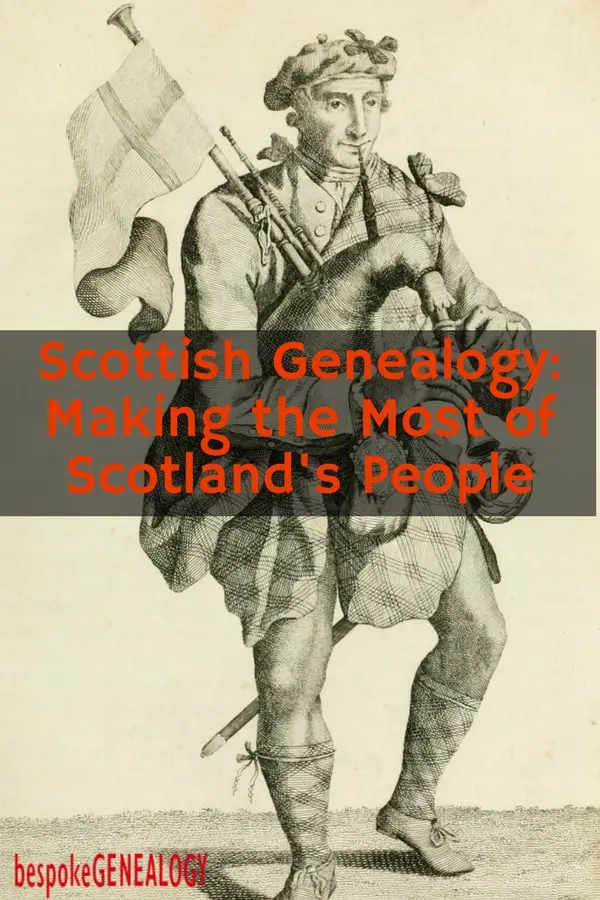
Those of us with roots in Scotland are really very lucky; availability of historic Scottish genealogy records is second to none. Many of these records are available online, with the Scotland’s People website holding the key resources. For those of you who haven’t used Scotland’s People or haven’t used it in a while, this post is an overview of what’s available and how to access the records.
Scotland’s People is an official Scottish Government website and holds statutory records (births marriages and deaths) for Scotland as well as parish registers, census records, wills and some other records. It is free to set up an account and to search the records, but to view and download them; you will need to pay (see below). However, bear in mind that the price for copies of civil BMD records is much less than ordering a similar document at the GRO for England and Wales.
Charges
To view and download copies of documents, you will need to buy credits which cost GBP0.25/each. You buy the credits in bundles, with the smallest bundle being 30 credits (GBP7.50). You can also buy 40 credits (GBP10.00), 80 credits (GBP20.00) and 160 credits (GBP40.00).
You should note that credits expire after two years (unless more credits have been purchased in the meantime) and there is no refund for unused credits, so don’t buy the larger bundles unless you are sure that you are going to use them within two years.
A copy of a statutory birth, marriage or death record costs 6 credits (GBP1.50), as do copies of parish register pages and census returns. Valuation rolls are 2 credits (GBP0.50), wills and testaments are 10 credits (GBP2.50), military service appeals tribunal records are 20 credits (GBP5.00), coats of arms are 40 credits (GBP10.00) and high quality pictures from the image library are GBP30.00 each.
Note that the charges above for statutory BMD records apply only to birth records older than 100 years, marriages older than 75 years and deaths older than 50 years. For more recent records, you will have to order a certificate which can be done on the website. The cost for a certificate is GBP12.00 plus postage. See the Ordering Certificates page for details.
Statutory Records
Civil registration began in Scotland on 1st January 1855. From that date it was compulsory for all births, marriages and deaths to be recorded by the State instead of the Church.
When searching for any record on Scotland’s People, I recommend using the “Advanced people search” function as this gives you more options to narrow down your search. Then search within the specific data set you are looking at. For births, you enter the name, year range and select the county and district. There are a number of search options for the name (first and last) like the ability to use wildcards, name variants and phonetic matching.
Birth records show:
- The baby’s name
- Date and sometimes the time of birth
- Where born
- Name of father and his occupation
- Name of mother and her maiden surname
- (Usually) date and place of parents marriage (really useful for genealogists)
- Name and qualification of informant (usually the mother or father)
- Place of registration
Marriage records can be searched using one or both spouses’ names. The same search options as for births are available.
Marriage records in Scotland have a bit more information on them than those for England and Wales. Here they show:
- District and County the ceremony took place
- Date and place of marriage
- (Usually) whether the marriage was after banns or licence and which church the ceremony conformed to
- Name, occupation, condition, age and address of groom
- Name, occupation condition, age and address of bride
- Name and occupation of both parties fathers
- Name and maiden surname of both parties mothers
- Name of officiating minister
- Names of witnesses
Death records can be searched by name and other surname that appears on the death certificate, although in my experience, this does not always work. You can type in a year of death range, age range or year of birth.
Again, there is more information on a Scottish death record than an English one. Information on these records includes:
- Name of deceased and occupation
- Name of spouse and occupation of spouse if applicable. Maiden surname of wife.
- Date and often the time of death
- Place of death
- Age at death
- Name and occupation of father
- Name and maiden surname of mother
- Cause of death
- Name of medical official who certified death
- Name, qualification and address of informant
- Place of registration.
Sometimes you will see a note in the margins on a statutory record. This usually refers to an RCE or Register of Corrected Entries. Where additional information needs to be added to a record after the event, this is done in the RCE. As a grim example, I have a relative who drowned in the River Clyde, Glasgow in 1901. The death record merely states cause of death; drowning. The later RCE gives more information after an investigation and states when and where she was last seen, where and when the body was found and that the drowning was believed to be accidental. This was certified by the Procurator Fiscal.
If you find a record with an associated RCE entry, there should be a link to it on the image page and you will be able to buy a copy to download.
Census Records
Like England and Wales, census records are available for every 10 years between 1841 and 1911. Transcriptions of the 1841 to 1901 censuses are available on the subscription sites FindMyPast and Ancestry. However, the actual records for all the 1841 to 1911 censuses are only available to view and download on Scotland’s People.
Note that for the 1881 census, there is the option to view the transcriptions from the LDS (Mormon) Church which can be viewed for free.
Census records can be searched by any person on the return and there are a number of search options.
Church Registers
Scotland’s People has church registers for the (established) Church of Scotland, the Roman Catholic Church and some other non-conformist churches.
The earliest Church of Scotland registers date from 1553, but registers for most parishes start much later.
The earliest Catholic registers date from 1703, but for most parishes there are no records before the early 1800s.
Most of the other church registers are from the various Presbyterian churches and the earliest date from 1716.
Information on the church registers is variable and depended on how thorough or conscientious the minister was.
Valuation Rolls
Valuation rolls are available for 1855, 1865, 1875, 1885, 1895, 1905, 1915, 1920, 1925, 1930 and 1935. They are very useful for determining where your relatives lived in between censuses and after the last currently available census in 1911.
The rolls list the name and occupation of the tenant as well as the name of the landlord, the yearly rent or value of the property as well as the property taxes due.
Legal Records
Included in this section on Scotland’s People are wills and testaments. Only a small minority of the population drew up wills. However, if you find that your ancestor had a will; it may contain a lot of useful genealogical information such as the names of his or her relatives that movable property was left to. It may also go into great detail about what was being left so that you can get an insight into how people lived at the time.
Scotland’s People has about 26000 wills of soldiers and some airmen. Most of these people were killed in action during the First World War. These wills will show which regiment the soldiers served in as well as the beneficiary of the will.
The site also holds records relating to the Military service appeals tribunal. Compulsory military service, during the First World War (for men aged 18 to 41) was introduced in 1916 and these records are the cases of men who appealed against their call up. Only a small number of records survive, but if you do find records for your ancestors they should give a useful insight into that person’s life at the time.
The final record set to mention is the Coat of Arms collection. Digital images of all Arms and Bearings registered in Scotland between 1672 until 1916 are available to download. If you have wealthy Scottish ancestors, you may find their coat of arms here.
Guides
There are a number of very useful guides on the website that explain the records sets in much more detail. You can find the guides here.
Enjoy your research!
For more reading on Scottish genealogy, you may find the following books useful:

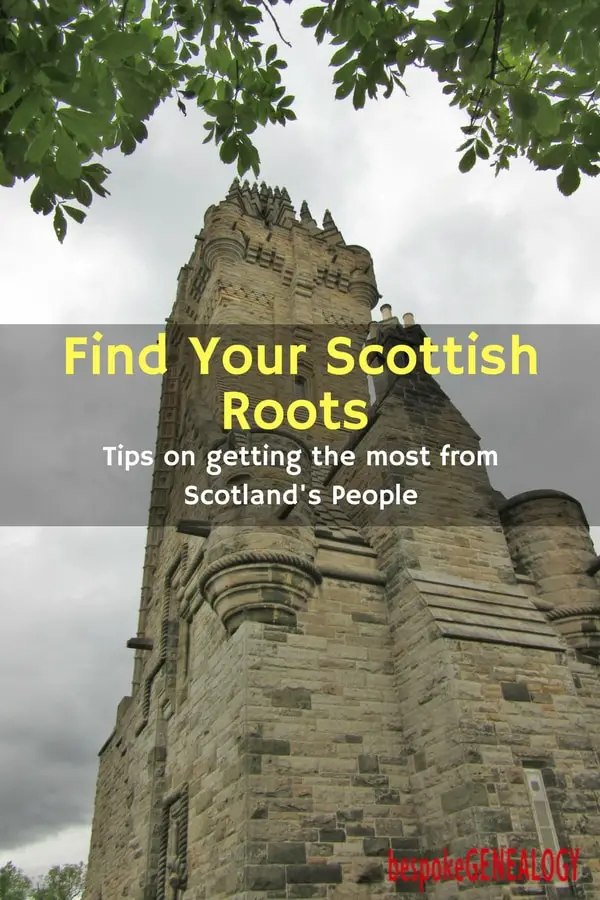
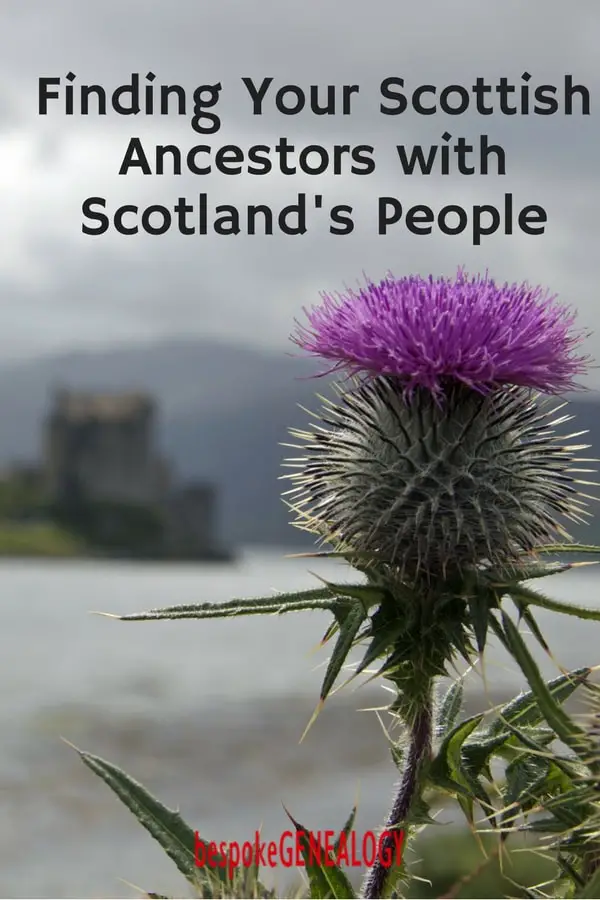
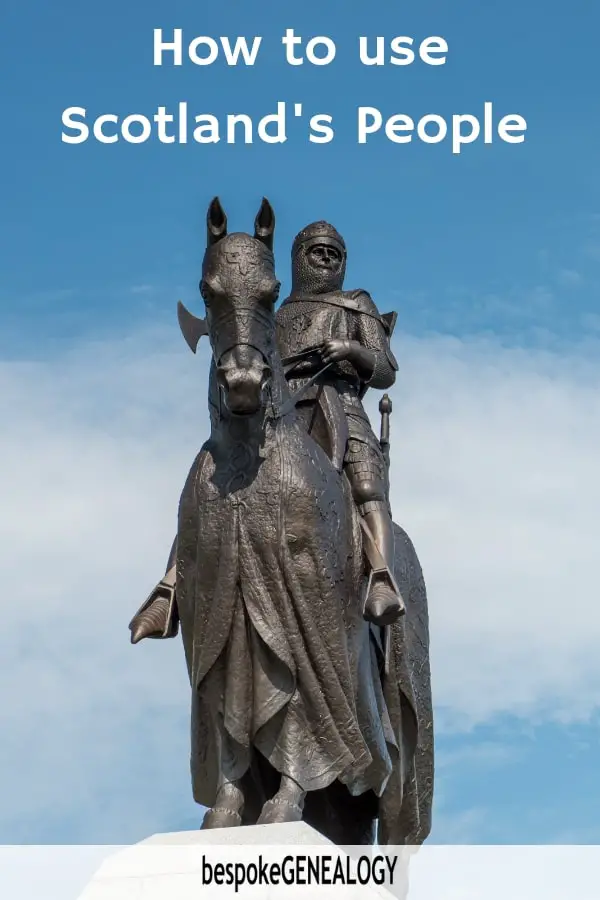
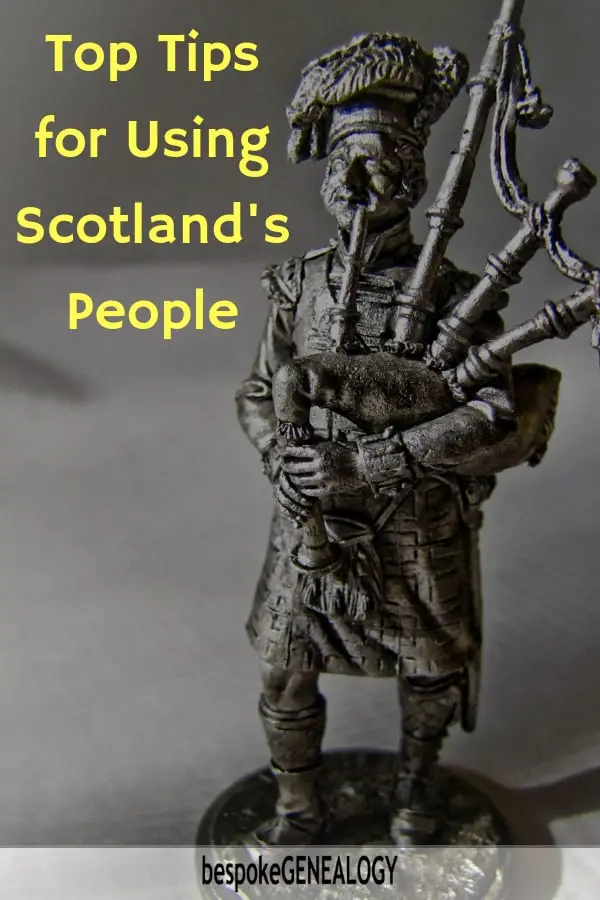
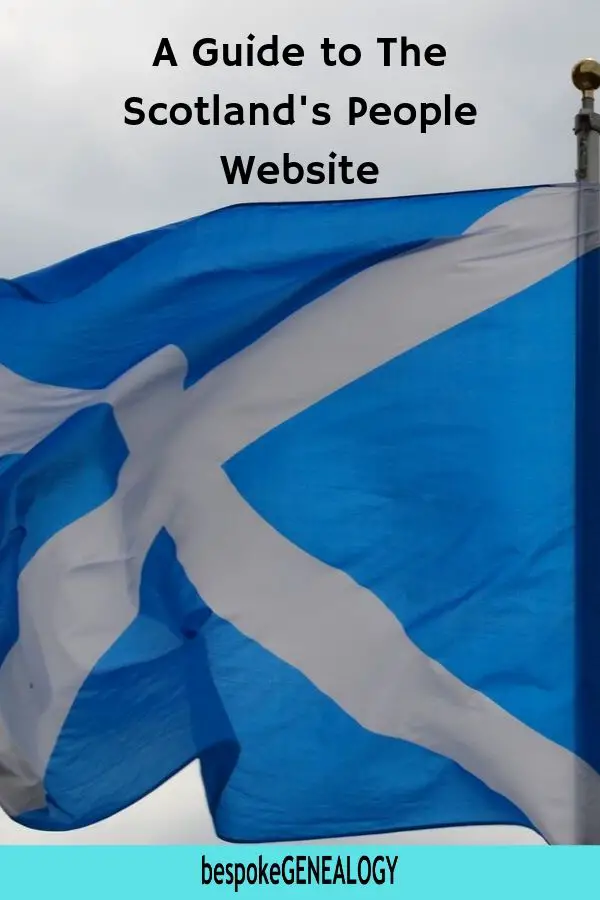
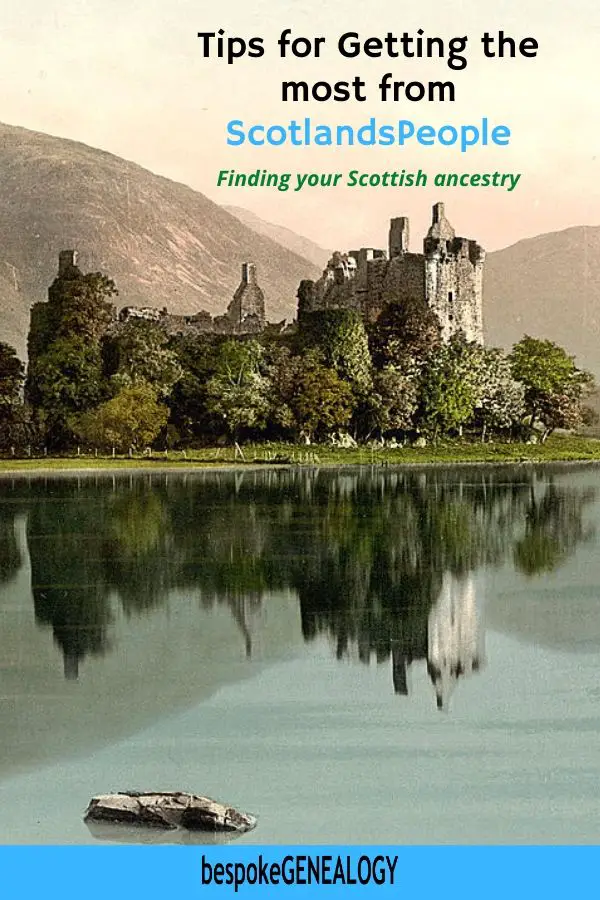
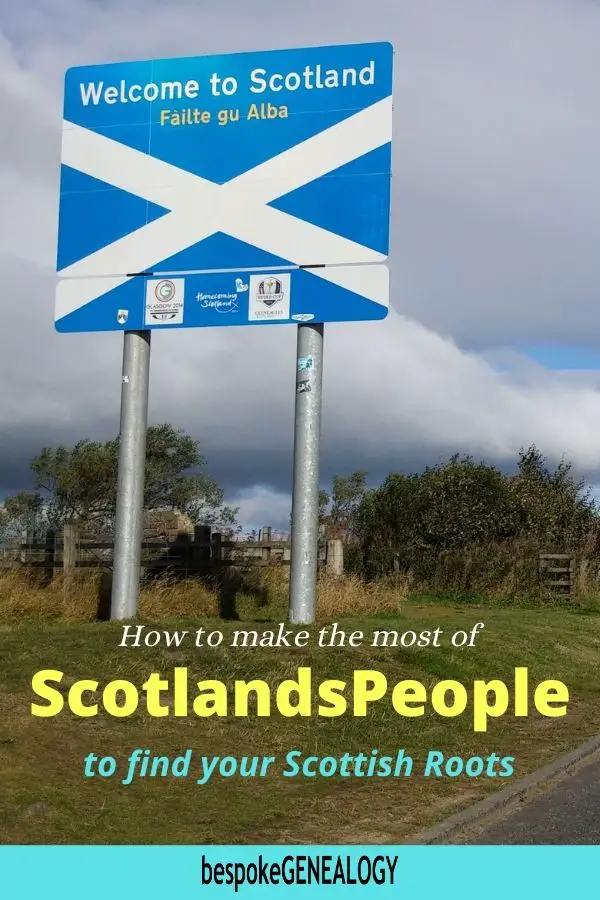
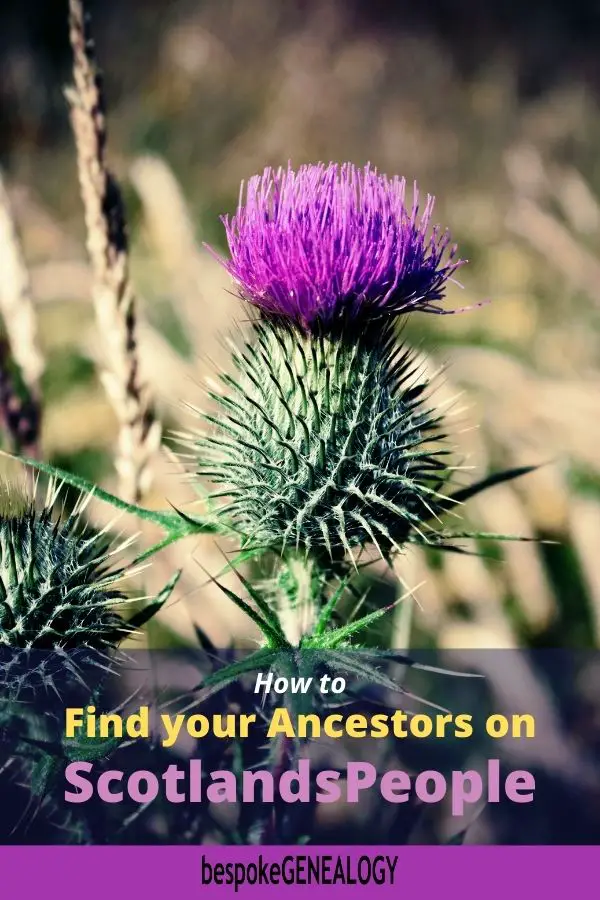
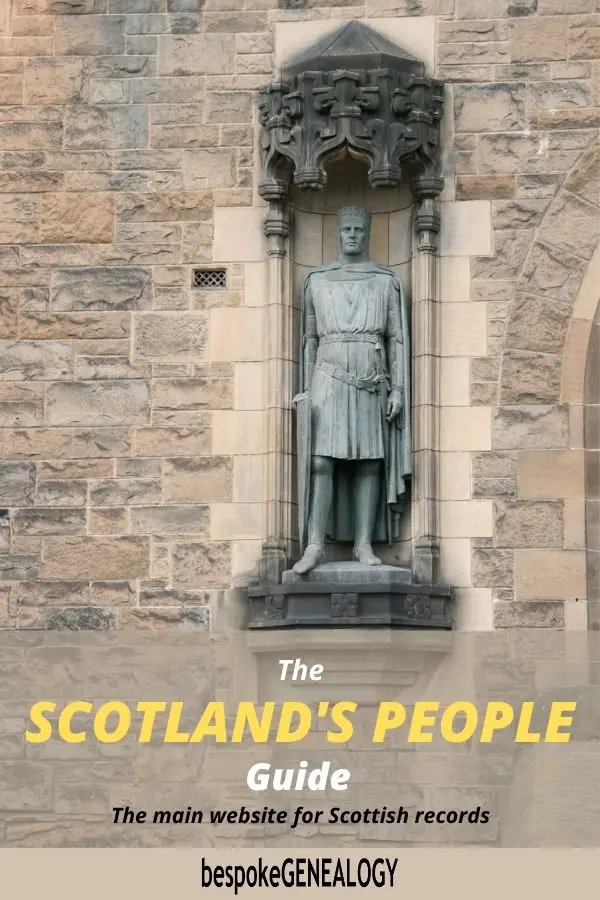
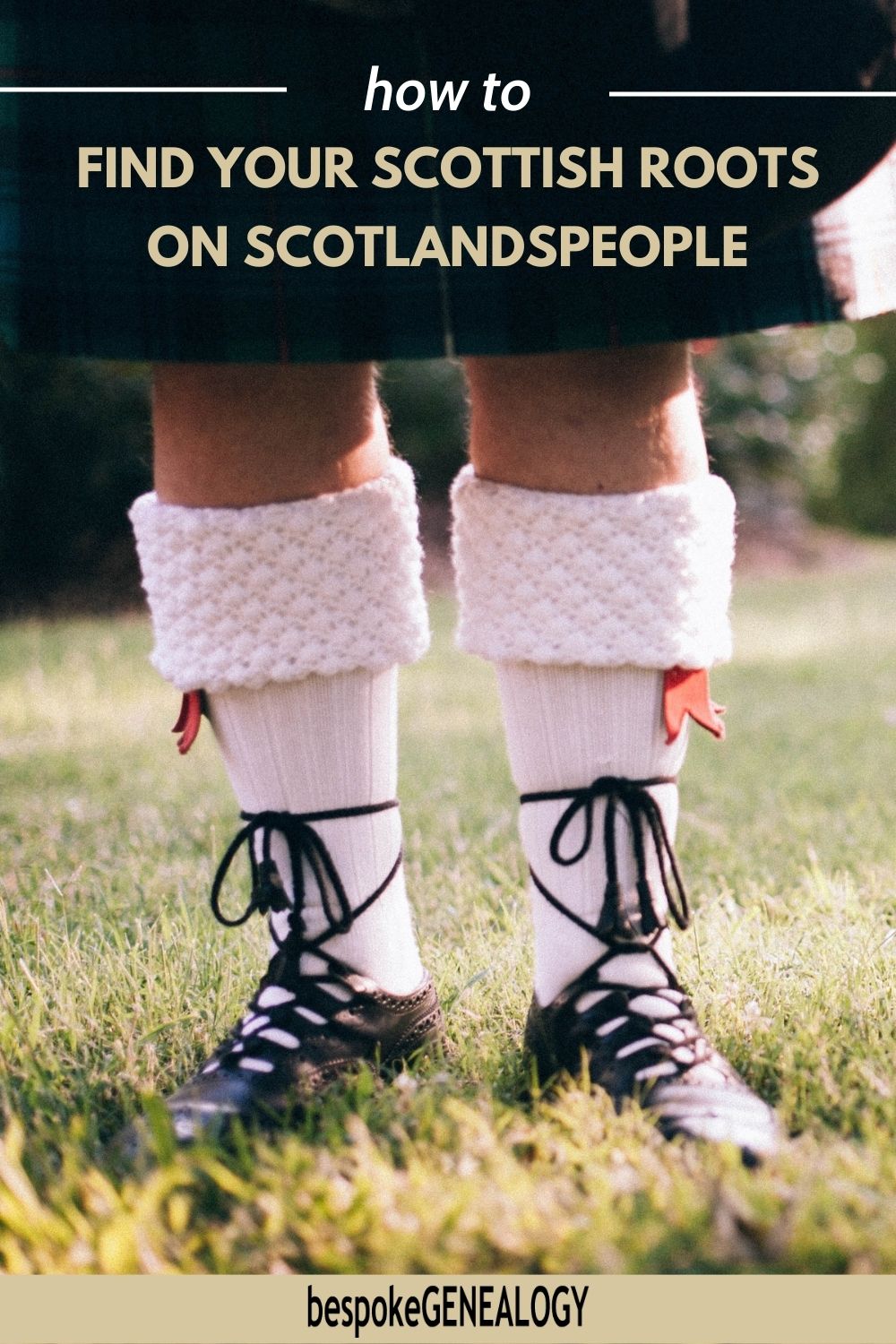

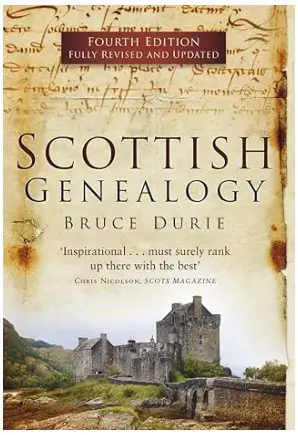
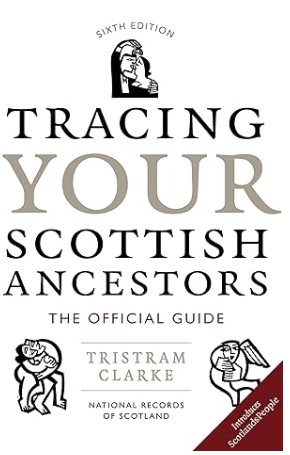
Leave A Comment